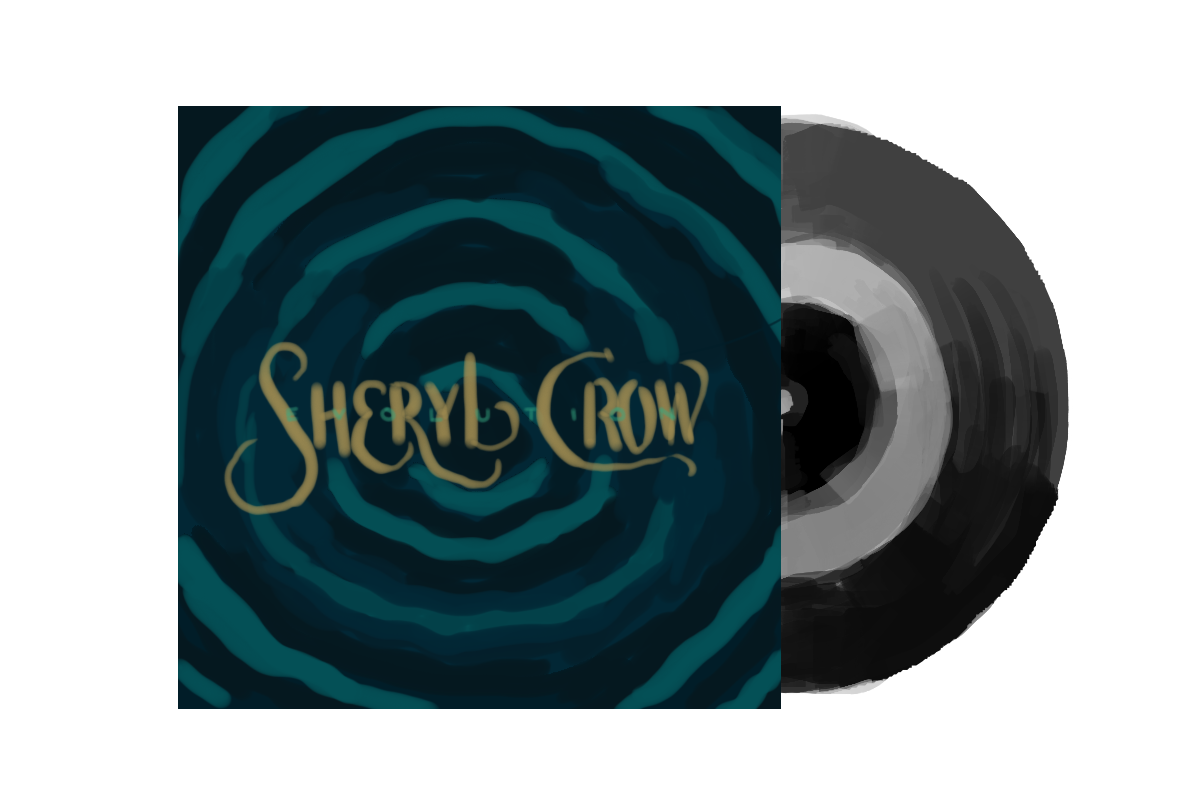From as far back as I can remember, Sheryl Crow’s hits have played in the car as my parents drove, at birthday parties and during holidays. I’ve grown up with Crow, and her unmistakable voice now accompanies me as I walk through the streets of New York City. Crow released 11 studio albums before announcing her musical retirement in 2019 because of the pressure to follow the amount of famous features on “Threads” like Stevie Nicks and Keith Richards. Despite this, though, she released “Evolution” on March 29, and it’s safe to say that I had high expectations.
Crow was an impressive presence in the rock and roll world before her retirement. She was inducted into the Rock & Roll Hall of Fame in 2023 with nine Grammys under her belt and 11 studio albums. Crow is most known for her fun pop twist on rock music and personal lyricism, and her song “Real Gone” was featured on the 2008 “Cars” film’s soundtrack. The song, with witty mechanical puns like, “Look out, you got your blinders on / Everybody’s lookin’ for a way / To get real gone,” has more than 120 million listens on Spotify.
Listening to the new record leaves me with mixed feelings. Many tracks were exactly what I had anticipated, reminding me of Crow’s classic hits like “All I Wanna Do” and “If It Makes You Happy.” Still, some of the songs with a more contemporary sound fall flat, lacking the playful essence that is undeniably Sheryl Crow. She is attempting to modernize her style, becoming more serious, but it is unsuccessful.
When Crow harnesses her carefree energy, her songs thrive. “Love Life” embodies Crow’s optimistic outlook on life. While bluesy guitar and drums accompany her, she sings about how life is short so we might as well make the most of it, like “I love this life / Don’t wanna let this moment slip away.” The last two minutes of the piece are filled with Crow singing “Na, na, na, na, na, na, na” repeatedly, encouraging listeners to just take these moments with her to have fun. It’s bouncy, the guitar the perfect tempo for a street strut along with a snare beat. I instantly added this track to my walking-through-the-city playlist to serve as a reminder to live in the moment.
“You Can’t Change the Weather” and “Do It Again” embrace Crow’s Americana roots while still bringing something fresh to the table with their twangy guitar, making for exciting listens. “Broken Record” was an especially pleasant surprise. Initially I was apprehensive, skeptical of the modern and funky keyboard chords. Yet by the end of the piece I was unabashedly jamming, pretending that I was the lead character of some ’90s campy teen rom-com.
The titular song, “Evolution” arguably veers the farthest from what fans recognize as classic Crow. The song begins, “Turned on the radio and there it was / A song that sounded like something I wrote.” While the song starts with an interesting thought, the idea isn’t fully developed throughout the piece. The instrumentation has a darker tone than anything else Crow has done and feels as though it belongs in a science fiction piece. It makes little sense in relation to the rest of the record, which is full of her classic optimistic storytelling. This interspersed experimental sound doesn’t feel fully fleshed out and isn’t coherent within the larger scope of the album. Especially with the amount of time between this and her retirement, it feels like her comeback should have been all edgy grunge like this, or most of her familiar work.
“Alarm Clock” is another attempt to be more current. This piece at least fits with the rest of Crow’s body of work, with her signature speak-singing and lighthearted nature. However, the dark electric guitar, use of Auto-Tune and references to pop culture figures such as Timothée Chalamet, all feel like a ploy to stay relevant rather than authentic Crow.
Despite my hesitations about the album’s flaws, I’d still recommend listening to “Evolution.” While it doesn’t live up to the rest of Crows albums like “Tuesday Night Music Club” and her self-titled record that have stuck with me for years, some of these new songs are true recalls to her talent that originally pushed her into the spotlight. Crow is cemented into the history of pop music — and “Evolution” reminds us why.
Contact Skylar Boilard at [email protected].
























































































































































